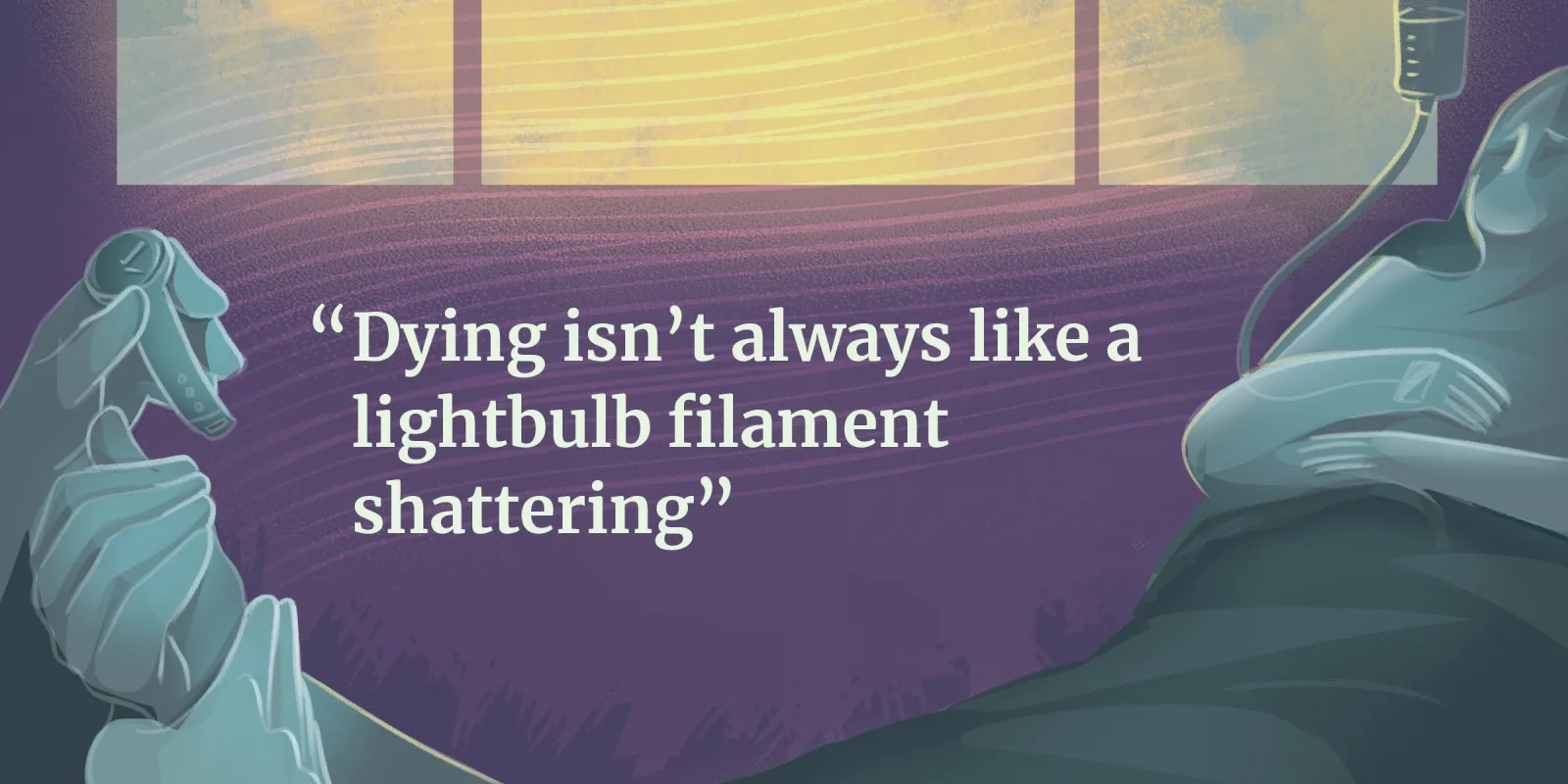This is part of the Medical Humanities Series on Op-Med, which showcases creative work by our members. Do you have a poem, short story, creative nonfiction or visual art piece related to medicine that you’d like to share with the community? Send it to us here.
The Lingering
dying isn’t always like a lightbulb filament shattering,
suddenly leaving one in an abyss of darkness.
sometimes it is
— full of waiting —
like staring at a
dew drop
crawling
down
a window
it is an odd feeling
to sit with a sedated person,
watching her decline anxiously,
awaiting her departure patiently,
lingering with her,
just as she lingers on Earth
it is an even stranger thing to listen to the
“death rattle,”
the harsh gurgling of saliva and mucus
when she is too weak to swallow.
I try hard to treat it as
background noise,
I soothe myself: it’s just like the static on an aging radio
in the meantime,
before Thanatos forces open her hospital door
and Charon demands an offering,
it enough for me — and probably enough for her—
to rub her hands, steadily
to comb hair, gently
to sponge water drops onto her mouth, carefully
to wipe away drool, purposefully
to embrace the death rattle, resignedly
and wait.
An Interview with the Poet
What inspired “The Lingering?” Did other poets influence your creation of this piece?
My favorite poets include Louise Gluck, Mary Oliver, Naomi Shihab Nye, and Maya Angelou. From these women I learned the power of poems that have an obvious emotional gut punch as a takeaway, but also of other poems that are more abstract, vague, and require more diligence and attention to penetrate their mystery.
How long have you been writing poetry?
I grew up listening to some Indian poetry performed as spoken word, and in college, I “discovered” Western poets, but I’ve only recently welcomed the task to write myself. Writing has very much become a therapeutic process for me, allowing me to reflect on my past experiences with patients in order to lend me insights on current patients, most importantly.
Why did you choose poetry? What interests you about it as a medium?
Poetry is a fitting medium when my thoughts are too chaotic or emotions too raw to organize and package into nice, flowing, grammatical sentences. Phrases and images can perfectly capture the meanings of things running through my head, and there’s freedom in withholding excess words or fillers — words and experiences can stand on their own.
How does this poem relate to your medical practice?
Especially now, and in the future with continuously emerging technologies, dying and death have become prolonged processes for some. This makes it even more important to work through the awkwardness I felt, and I suspect many other trainees have as well, about the uncertainty and significance of my role as a student who didn’t know this patient before her decline. What can I do to support her, even as we make minimal medical adjustments to her care in the hospital? This poem explores that.
Tulsi Patel is a third-year MD/MPH student at Northwestern University Feinberg School of Medicine. She graduated from Columbia University in 2019 with a bachelor's degree in neuroscience. This poem previously appeared in Snapdragon: A Journal of Healing.
Illustration by April Brust






